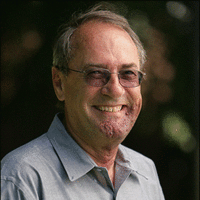The terms denote engineering domains that have high CPS content.
Event
WAT 2018
The Second Workshop on Adaptive Technology (WAT 2018) is a development of a 10+ years national event held at University of São Paulo (Brazil) called WTA. It aims to provide a proper forum to discuss adaptivity both on theory and application. It is expected the presentation of high-quality, original research covering all aspects of adaptivity, its methodologies, design, analysis, implementation, verification, and case-studies. Original papers that embraces new and emerging research ideas about adaptivity are also welcome.
Submitted by Anonymous on November 20th, 2017
Event
IntelliSys 2018
Intelligent Systems Conference (IntelliSys) 2018 - Call for Papers
Technically Co-Sponsored by IEEE
IntelliSys 2018 will focus in areas of intelligent systems and artificial intelligence and how it applies to the real world. IntelliSys provides a leading international forum that brings together researchers and practitioners from diverse fields with the purpose of exploring the fundamental roles, interactions as well as practical impacts of Artificial Intelligence. It is part of the conference series started in 2013.
Submitted by Anonymous on November 15th, 2017
Event
AAMAS 18
International Conference on Autonomous Agents and Multiagent Systems (AAMAS-18)
AAMAS is the leading scientific conference for research in autonomous agents and multiagent systems. The AAMAS conference series was initiated in 2002 by merging three highly respected meetings: the International Conference on Multi-Agent Systems (ICMAS); the International Workshop on Agent Theories, Architectures, and Languages (ATAL); and the International Conference on Autonomous Agents (AA).
Submitted by Anonymous on November 8th, 2017
Event
SmartEdge 2018
The Second International Workshop on Smart Edge Computing and Networking (SmartEdge 2018)
In Conjunction with IEEE PerCom 2018 (http://www.percom.org/)
 Submitted by Amy Karns on November 8th, 2017
Submitted by Amy Karns on November 8th, 2017
Call for Papers
IEEE is the Technical Co-Sponsor (TCS) of the International Conference on Cyber Situational Awareness, Data Analytics and Assessment (CyberSA 2018, an international refereed conference dedicated to the advancement of the principles, methods and applications of situation awareness on Cyber Systems, Business Information Systems (BIS), Computer Network Defence (CND), Critical National Infrastructures (CNI), Cyber Physical Systems (CPS) and Internet of Things (IoTs).
 Submitted by xavier bellekens on October 30th, 2017
Submitted by xavier bellekens on October 30th, 2017
Event
ARCS 2018
CALL FOR PAPERS, WORKSHOPS, & TUTORIALS
31st International Conference on Architecture of Computing Systems (ARC 2018)
April 09 -12, 2018 | Braunschweig, Germany at the Technical University of Braunschweig | http://arcs2018.itec.kit.edu/
Submitted by Anonymous on October 5th, 2017
The confluence of two powerful global trends, (1) the rapid growth of cloud computing and data centers with skyrocketing energy consumption, and (2) the accelerating penetration of renewable energy sources, is creating both severe challenges and tremendous opportunities. The fast growing renewable generation puts forth great operational challenges since they will cause large, frequent, and random fluctuations in supply. Data centers, on the other hand, offer large flexible loads in the grid. Leveraging this flexibility, this project will develop fundamental theories and algorithms for sustainable data centers with a dual goal of improving data center energy efficiency and accelerating the integration of renewables in the grid via data center demand response (DR) and workload management. Specifically, the research findings will shed light on data center demand response while maintaining their performance, which will help data centers to decide how to participate in power market programs. Further, the success of data center demand response will help increase renewable energy integration and reduce the carbon footprint of data centers, contributing to global sustainability. The PIs will leverage fruitful collaboration to eventually bring the research to bear on ongoing industry standardization and development efforts. The PIs teach courses spanning networks, games, smart grid and optimization, and are strongly committed to promoting diversity by providing research opportunities to underrepresented students.
Built on the PIs expertise on data centers and the smart grid, this project takes an interdisciplinary approach to develop fundamental theories and algorithms for sustainable data centers. The research tasks are organized under two well-coordinated thrusts, namely agile data center DR and adaptive workload management. The strategies and decisions of data center DR will be made based on the workload management algorithms that balance quality of service and energy efficiency and determine the supply functions. The workload management algorithms will optimize quality of service under the electric load constraints imposed by DR accordingly. This project will make three unique contributions: (1) new market programs with strategic participation of data centers in DR, instead of passive price takers, (2) fundamental understanding of the impacts of power network constraints on data center DR and new distributed algorithms for solving optimal power flow with stochastic renewable supplies, and (3) high-performance dynamic server provisioning and load balancing algorithms for large scale data centers under time-varying and stochastic electric load constraints and on-site renewable generation.
Off
California Institute of Technology
Steven Low
-
National Science Foundation
Submitted by Steven Low on October 3rd, 2017
Most critical infrastructures have evolved into complex systems comprising large numbers of interacting elements. These interactions result in the spread of disruptions, such as delays, from one part of the system to another, and even from one infrastructure to another. Effective tools for the analysis and control of real-world infrastructures need to account for the underlying dynamics.
The key insight in this research is that by learning data-driven models of infrastructure networks, and using these models to determine dynamics-aware recovery algorithms, we can greatly improve the resilience of critical infrastructure networks. We propose to address these challenges by:
1. Learning and validating scalable representations of real systems from data. By considering continuous states, and by modeling the time-varying nature of connectivity as switching between network topologies, we propose to obtain a class of switched linear system models. Multilayer network models will be developed to account for airline networks, and multimodal systems.
2. Characterizing resilience, both for the system as a whole, and in terms of individual nodes (e.g., susceptibility to network delays). The metrics to evaluate resilience will encompass both steady-state and transient behavior.
3. Using the identified models to design optimal control algorithms that can enable recovery from disruptions, taking into account network dynamics, the uncertainty in operating environments, and the costs of decisions to restore service at various levels, at various times.
The results of the research will be validated using operational data, thereby yielding a set of tools for system diagnostics, analysis, and recovery.
Improving and maintaining critical infrastructures are among the grand challenges identified by the National Academy of Engineering. The proposed research will develop techniques grounded in network science, machine learning, and systems and control theory in order to effectively design and operate infrastructures. The development of common frameworks and abstractions for these infrastructures will enable the study of their interdependencies. With the rapid growth of intelligent infrastructures, the proposed research will benefit society, and also help attract and train the next generation of engineering professionals.
Off
Massachusetts Institute of Technology
Hamsa Balakrishnan
-
National Science Foundation
 Submitted by Hamsa Balakrishnan on October 3rd, 2017
Submitted by Hamsa Balakrishnan on October 3rd, 2017
Project
2017 CPS PI Meeting
The purpose of this project is to plan and organize the 2017 NSF Cyber-Physical Systems (CPS) Principal Investigator (PI) Meeting. This meeting convenes all PIs of the National Science Foundation CPS Program for the fifth time since the program began. The PI Meeting is to take place on November 13-14, 2017 in Alexandria, Virginia. The PI meeting is an annual opportunity for NSF-sponsored CPS researchers, industry representatives, and Federal agencies' representatives to gather and review new CPS developments, identify new and emerging applications, and to discuss technology gaps and barriers. The program agenda is community-driven and includes presentations (oral and poster) from PIs, reports of past year program activities, and showcase/pitch new CPS innovations and results.
The annual PI Meeting serves as the only opportunity where the CPS researcher community gathers to share their research, discuss new research opportunities and challenges, and explore new ideas and partnerships for future work. Furthermore, the PI meeting is also an opportunity for the academic research community to interact with industry entities and government agencies with vested interest in CPS research and development. The PI Meeting is a forum for sharing ideas across the CPS community. It has played a major role in growing the community across broad range of sectors and technologies, and performing outreach to others who have interest in learning about the program and participating as future proposers, transition partners, or future sponsors. The 2017 PI meeting will feature additional demonstrations to show the impact of CPS research. Finally, we expect to conduct discussions across the community on considerations and ideas to inspire CPS 2.0, and future collaborations with the Industrial Internet Consortium which includes multiple organizations transitioning CPS research into practice.
Off
Frankie King
Vanderbilt University
Janos Sztipanovits
-
National Science Foundation
 Submitted by Janos Sztipanovits on October 2nd, 2017
Submitted by Janos Sztipanovits on October 2nd, 2017
Event
ICDCN 2018
19th International Conference on Distributed Computing and Networking (ICDCN 2018)
ICDCN is a premier international conference dedicated to addressing advances in Distributed Computing and Communication Networks, which over the years, has become a leading forum for disseminating the latest research results in these fields. The 19th edition of this international conference will be organized in India, at Indian Institute of Technology (BHU), Varanasi. Varanasi is the oldes city and finds place in most of the mythological scriptures of Hinduism as well.
Submitted by Anonymous on September 22nd, 2017
Feedback
Feedback
If you experience a bug or would like to see an addition or change on the current page, feel free to leave us a message.